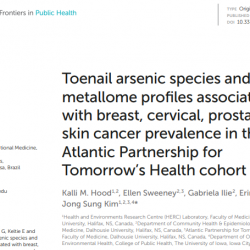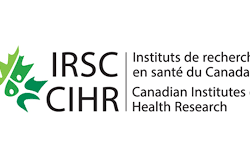Dr. Raza Abidi appointed Digital Health Canada Representative to IMIA
Join us in congratulating our colleague, Dr. Raza Abidi on being appointed Digital Health Canada Representative to the International Medical Informatics Association! Please see details below for the announcement. Dr. Abidi works alongside Dr. Jong Sung Kim and Dr. Ellen Sweeney on a longstanding research stream on environmental exposures and cancer using data and biological samples (toenails!) from Atlantic PATH. ***** Digital Health Canada’s Board of Directors is pleased to appoint Dr. Raza Abidi to the position of Digital Health Canada Representative to IMIA (the International Medical Informatics Association). Digital Health Canada has been the Canadian Representative since IMIA’s inception in 1980 and is a Charter member. Dr. Abidi is a tenured Professor at the Faculty of Computer Science, Dalhousie University, and holds a cross-appointment as Professor in the Dalhousie Department of Medicine. He is the founding director and lead scientist at the NICHE (kNowledge Intensive Computing in Healthcare Enterprises) research group that conducts interdisciplinary research at the intersection of digital health, artificial intelligence (AI) for healthcare, and digital transformation. Dr. Abidi served on the Digital Health Canada Board of Directors for six years and has a sound understanding of the mission and activities of the association. He is keenly aware of the need to bring the Canadian digital health community and its achievements to the world stage by enabling active participation in IMIA conferences, events, and working groups. Dr. Abidi is an internationally recognized healthcare researcher and leader with multiple international and national awards and recognitions. His primary research focus is Artificial Intelligence (AI) for healthcare and digital health, and he has extensive experience of (a) health data analytics using state-of-the-art AI methods to derive data-driven health intelligence, (b) health knowledge management by applying semantics-driven AI methods to derive knowledge-driven health intelligence by computerizing and operationalizing clinical practice guidelines/workflows, and (c) implementing research outputs as digital health solutions. His collaborative research activities have successfully led to (a) development of innovative point-of-care digital health solutions, (b) digital transformation of clinical workflows as decision support systems, (c) strategic planning and conception of new research themes and projects, (d) acquisition of multiple competitive research grants from various agencies and industry sponsors, (e) health data analysis and visualization, (f) health system evaluation and optimization studies, (g) publication of research articles at top-tier venues and invited talks, and (h) mentoring of junior researchers and talent development. I am confident that I can showcase the full potential of Canada in digital health research, innovation and entrepreneurship, and engage the broader Digital Health Canada community in IMIA activities so that Canada is regarded as a hub of digital health innovation and transformation. – Dr. Raza Abidi, Digital Health Canada Representative to the International Medical Informatics Association About IMIA IMIA provides leadership and expertise to the interdisciplinary health informatics community around the world. IMIA aims to enable the transformation of healthcare using information technology and plays a key role in promoting and furthering the application of digital technologies in healthcare. IMIA brings together leading scientists, researchers, vendors, developers, and consultants in a global context. Every two years, IMIA holds the preeminent international health informatics conference—World Congress on Medical and Health Informatics: MedInfo—where researchers and practitioners from around the world present their latest work in digital health. About this role As the new Digital Health Canada IMIA representative, Dr. Abidi will act as a liaison between Digital Health Canada and IMIA and will represent Canada on the world stage, connecting Digital Health Canada with representatives from corresponding national organizations and focusing on advances in digital health from other countries. Dr. Abidi will exercise voting rights on behalf of Digital Health Canada at the annual IMIA General Assembly, and will serve a two-year term on the IMIA Board as the Vice President North America.









